Profile of America’s Underpaid Cops: St. Louis County
Some officers who responded to protests against the police shooting of 18-year-old Michael Brown in Ferguson, Mo., in August earn as little as $10.50 an hour.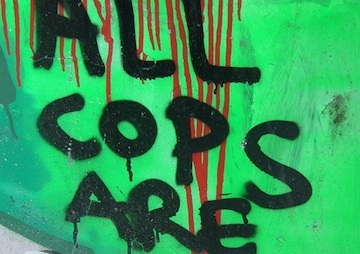 Photo by Chalky Lives (CC BY 2.0)
Photo by Chalky Lives (CC BY 2.0)
Photo by Chalky Lives (CC BY 2.0)
Some officers who responded to protests against the police shooting of 18-year-old Michael Brown in Ferguson, Mo., in August earn as little as $10.50 an hour.
Officer pay data obtained from 24 municipal police departments in St. Louis County from NBC News revealed “a gulf between police officer pay in poor, majority African-American northern cities and wealthier, whiter cities further south. Average annual patrol officer pay ranges from $23,000 in Hillsdale to nearly $70,000 in Town and County and Des Peres.”
The gap mirrors metropolitan areas and rural communities around the United States. Some officers earn modestly comfortable middle-class incomes while others scrape by on poverty or near-poverty wages and take second and third jobs to make ends meet.
Inadequate pay also affects the communities the officers patrol. NBC quotes David Harris, a University of Pittsburgh law professor who studies policing, as saying: “In areas without a tax base to speak of, where residents live in poverty already, communities are saddled with a police force that is underpaid and under resourced in other ways. … It’s another form of a penalty for being poor.”
NBC describes the struggle of Robert Howard, a 37-year-old officer in “economically-struggling” Hillsdale, a city of 1,500 with one of the lowest-paid police forces in the county and the country, according to the federal Bureau of Labor Statistics.
Howard lists his mounting overdue bills: rent, electric, trash, cell phone, two delinquent payday loans, and payments on the used Volkswagen in the driveway. He pays more than $300 each month in child support to an ex-partner. Howard is thousands of dollars in debt.
Howard lives in a small rented house on a quiet street in Ferguson with his family—his wife Jamie, a bank teller who is now pregnant, their two-year-old son, and Robert’s 15-year-old brother, who’s lived there since their mother passed away from cancer last December. In August, Howard installed a security camera system that he couldn’t really afford. Sitting in a chair that he bought through a high interest rent-to-own store, he explains that protesters threatened his family, “because I’m an officer and they know that.”
Raised in a low-income family on the north side of St. Louis, Howard served in the Marines for three years after high school. He bounced from job to job—private security, pizza delivery—and graduated from the St. Louis Police Academy in 2009. Since then, he’s worked for three different police departments in St. Louis County, all paying between $10.50 and $12.50 an hour.
“This is not what I expected,” said Howard. “I thought being a police officer was a really good job.”
“We live day to day,” he added.
Howard confirms that low pay can contribute to police misconduct. “If you are not making enough to pay for what you need, people do stupid things,” NBC quotes him as saying.
Read more here.
— Posted by Alexander Reed Kelly.
Your support matters…Independent journalism is under threat and overshadowed by heavily funded mainstream media.
You can help level the playing field. Become a member.
Your tax-deductible contribution keeps us digging beneath the headlines to give you thought-provoking, investigative reporting and analysis that unearths what's really happening- without compromise.
Give today to support our courageous, independent journalists.
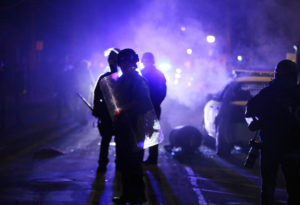
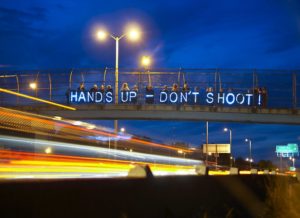
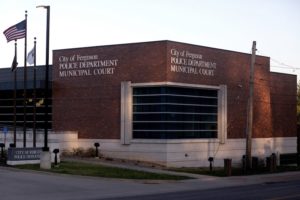
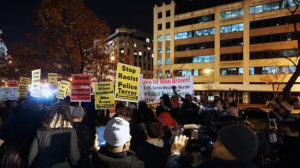

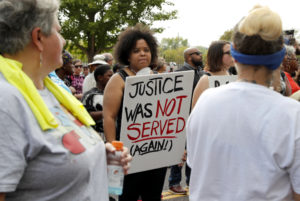
You need to be a supporter to comment.
There are currently no responses to this article.
Be the first to respond.